Once a family of three patrolled isolated Yulmed, which today is a prosperous, modern area
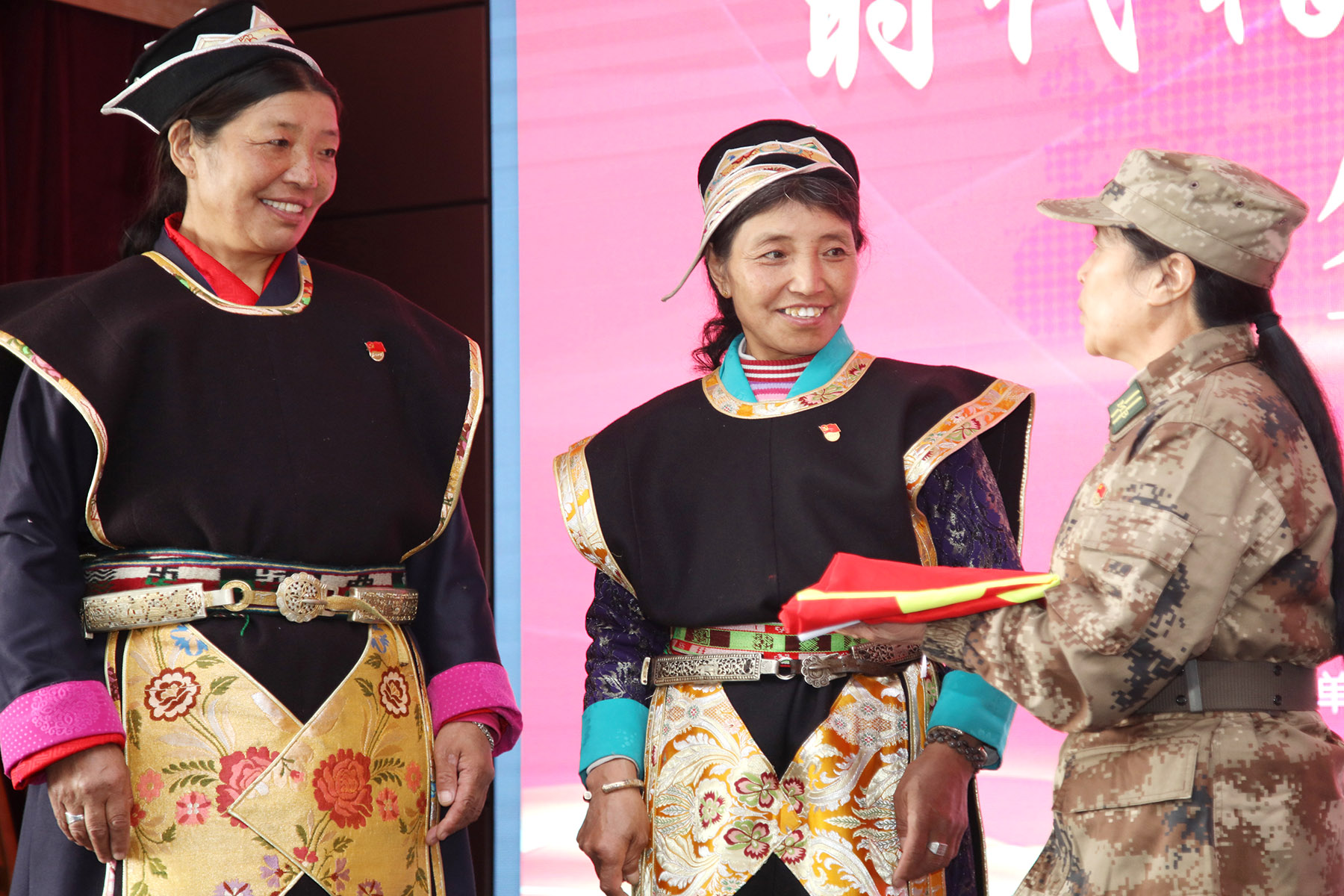
When Pasang Tsering took a teaching job at the school in Yulmed, Xizang autonomous region, in 2007, he was warned by many people that the living conditions in the township located in the southern foothills of the Himalayas were very tough.
But he was still surprised by the reality of everyday life in what was once the least-populated township in China.
"Surrounded by mountains on three sides at an average altitude of more than 5,000 meters, it took me about four days to get to the township from the county seat of Lhunze due to the poor condition of the road," Pasang Tsering said. "I literally had to traverse steep slopes and rugged paths on foot to get to Yulmed. I will never forget that trip."
READ MORE: Staying true despite success
With an unstable electricity supply from a small hydropower station, even watching TV was a luxury back then. In Yulmed, located in the remote area near the China-India border, communication with the outside world was often cut off, he added.
But things are completely different today. A three-person township decades ago, it is now home to over 200 people and oversees two villages. Pasang Tsering has become the Party chief of one village, also called Yulmed.
With improved infrastructure, such as roads and telecommunications, the locals can access the latest information via social media and have online orders delivered to their doorstep, just like people in Beijing, Pasang Tsering said proudly.
"If a place like Yulmed can thrive so much in less than two decades, the development of Xizang as a whole is even more extraordinary," he said.
People have to get through two mountain passes at an altitude above 5,000 meters to get to Yulmed from Lhunze, Shannan city. Besides the stunning view of the snow-capped mountains and grand valleys, the 10-kilovolt power transmission line extended by the State Grid to Yulmed in 2019 along the well-paved road is also hard to miss.
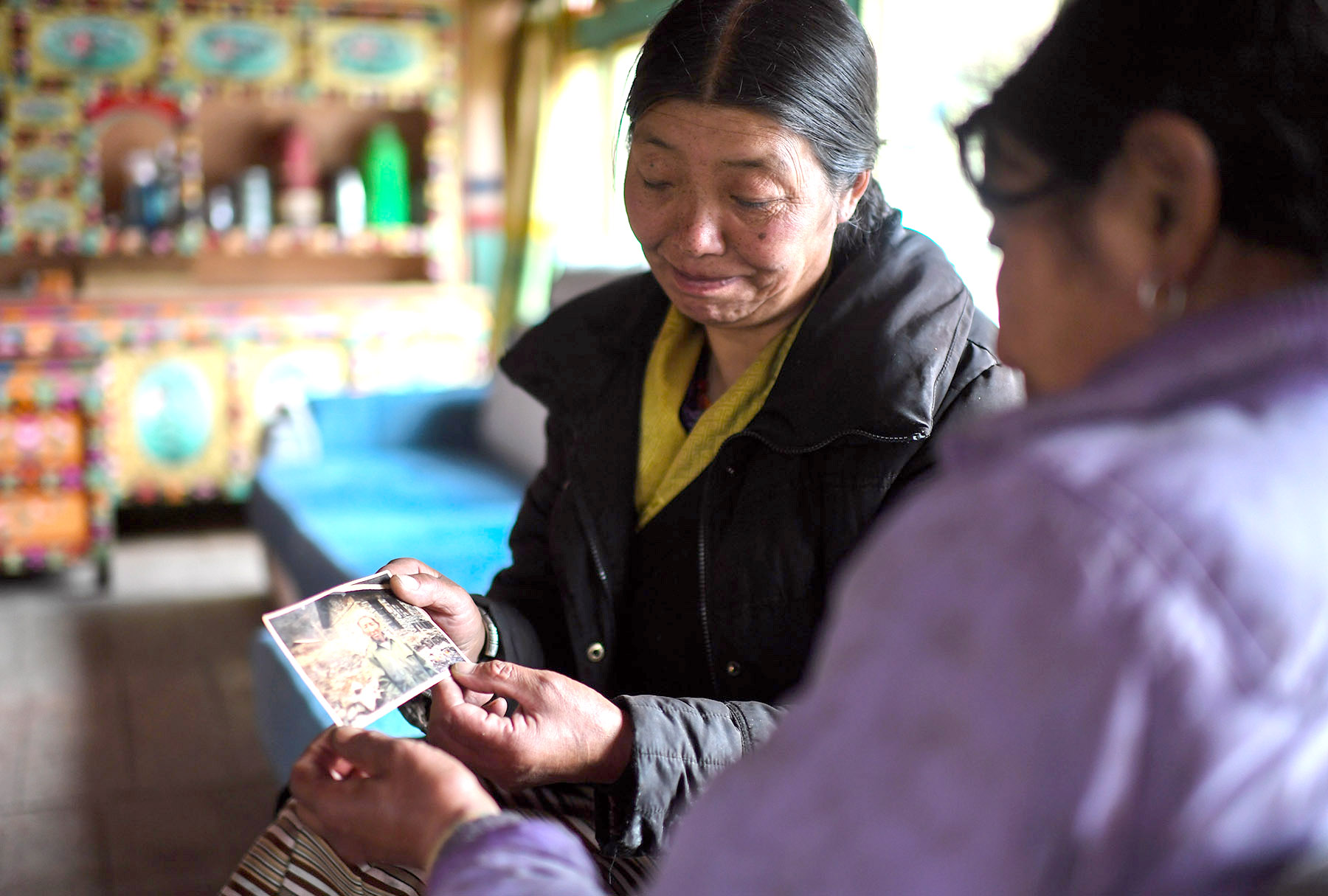
The reconstruction of a 50-kilometer paved road connecting Yulmed to a neighboring township was completed in the same year with investment of over 500 million yuan ($69.67 million) by the state, which stopped it being snowbound every year.
"Before the reconstruction of the road, Yulmed would become inaccessible to vehicles when it started to snow in October, until at least the following June. The widened and hardened road has fundamentally changed people's life," Pasang Tsering said.
Since 2018, Yulmed has built itself into a prosperous border township with steel-framed houses, an electricity grid, roads, a 5G network, medical care and financial services facilities.
"As life in Yulmed has become more convenient than ever, more young people are willing to come and run businesses including shops, restaurants, family inns and teahouses," he said. "The children can also receive good education via online courses, which is something I wouldn't even dare to dream about when I was a teacher."
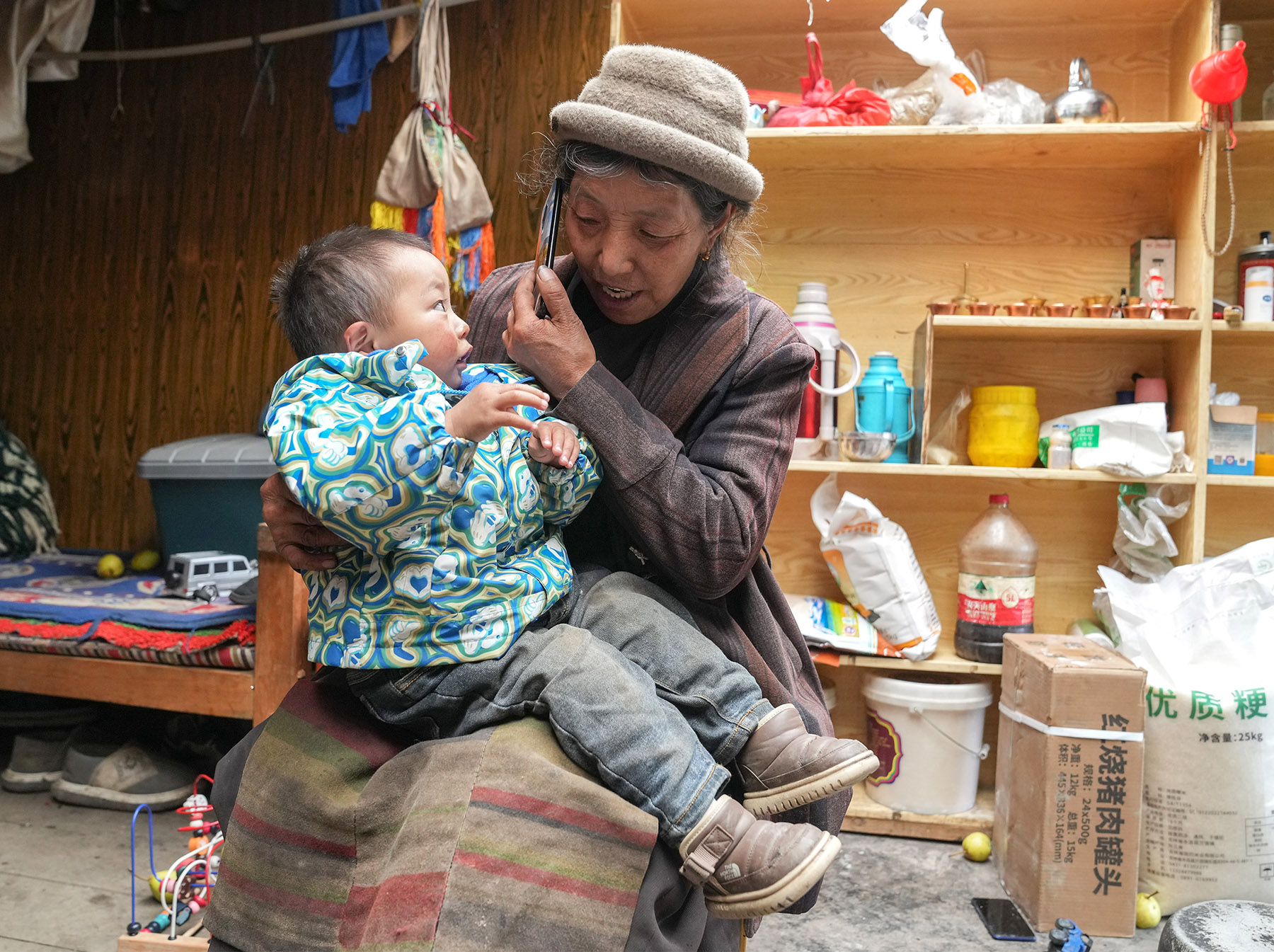
Family patrols
Tenzin Samdrup came to Yulmed about 10 years ago, married and had children. The couple run a courier business, which has become increasingly busy.
Delivery services can now reach Yulmed after roads were improved, and it's very convenient for residents to buy things online. In the past, people had to travel for days to buy daily necessities from nearby townships, Tenzin Samdrup, 31, said.
"Nowadays, there are hundreds of express parcels arriving in Yulmed every day. More and more people are shopping online. It's quite something considering how remote Yulmed is."
With improved infrastructure, tourism is also booming, especially between June and September. By the end of 2024, a total of 55 families in the township had set up homestays to accommodate tourists.
Rinchen Phuntsog, the township head, said a tourist service and reception center has been built and is expected to begin operating by the end of this year. "It will be helpful to attract tourists and increase the income of our village collective."
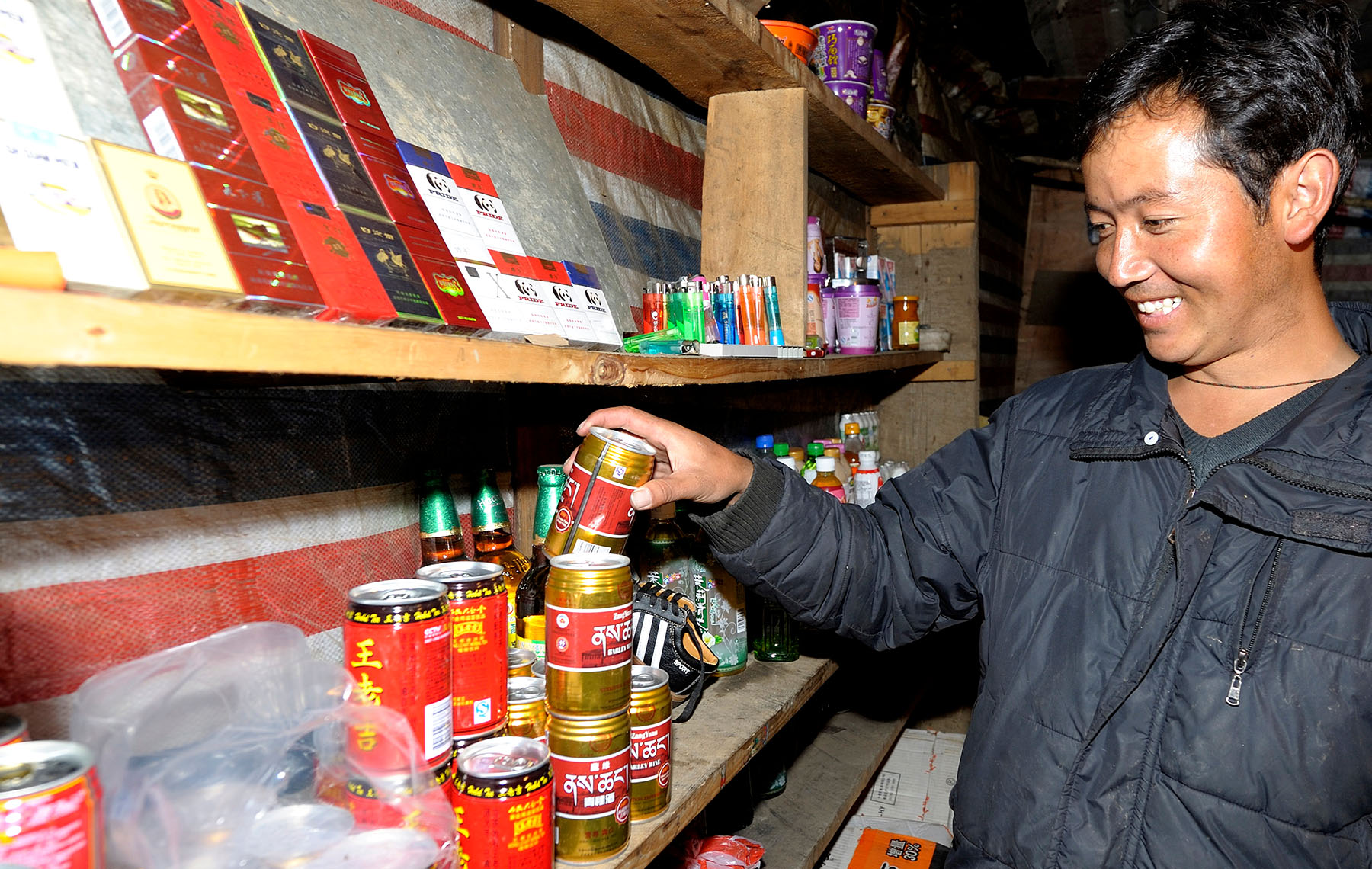
Although the population in Yulmed has continued to grow, between 1964 and 1996 only three people lived in the township — Yangzom, her sister Zhoigar, and their father Sangye Chopa, the former township head.
The family was determined to protect a total of 3,644 square kilometers of township land on the border between China and India.
Yangzom, 62, began patrolling the border with her father when she was 16 years old. He passed away in 2001, but he instilled in her the attitude that protecting the land beneath your feet is to protect your country, she said. Their old residence has been turned into a museum that faithfully recreates the former poor living conditions of the family.
"Many people moved away because life in Yulmed was too tough to endure back then," Yangzom said.
"I asked my father why we must stay. He said if people all moved away, the land beneath would be lost, which is something he wouldn't allow. They were his exact words," she said.
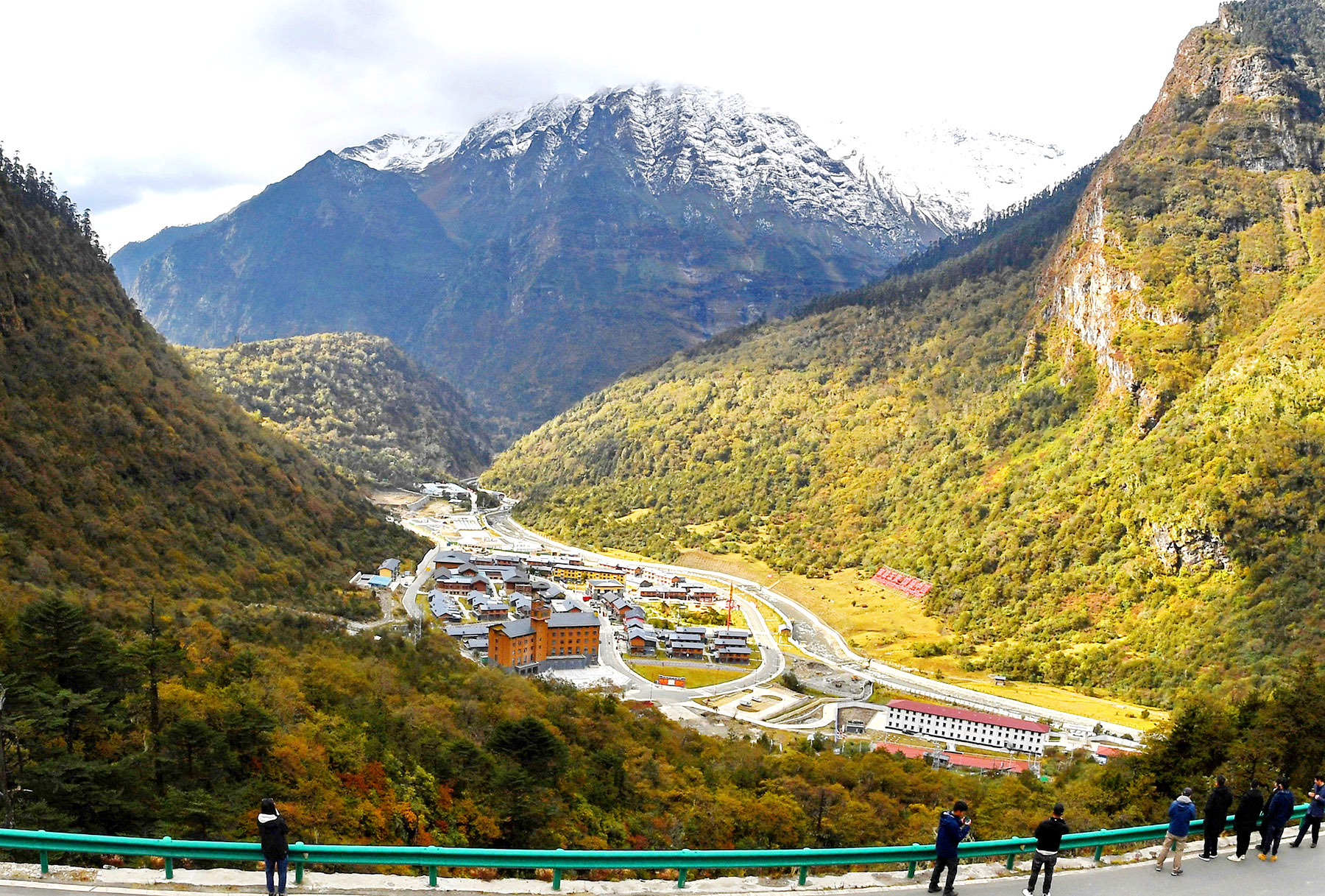
Father's legacy
Zhoigar married a herdsman named Pasang who took on the family responsibility of patrolling the border while also herding his yaks. From the outset, he upheld the traditions established by his wife's father.
"We wanted people to see that there are Chinese people guarding the border. We all do it from our heart and proudly," he said. "As shown to us by Sangye Chopa, we put the Chinese national flag at key intersections near the border to show our presence, which is very important.
"We had to make those flags all by ourselves. Even the red cloth for the flags was hard to source back then, so they were the most valuable things," said Pasang.
A giant slogan in red on a hillside that reads our "Home is Yulmed, country is China" once uttered by Sangye Chopa, is now the most famous landmark in the township.
"Everyone in the village knows the family and its story. Those words still represent the spirit of the Yulmed people," Pasang Tsering, the teacher, said.
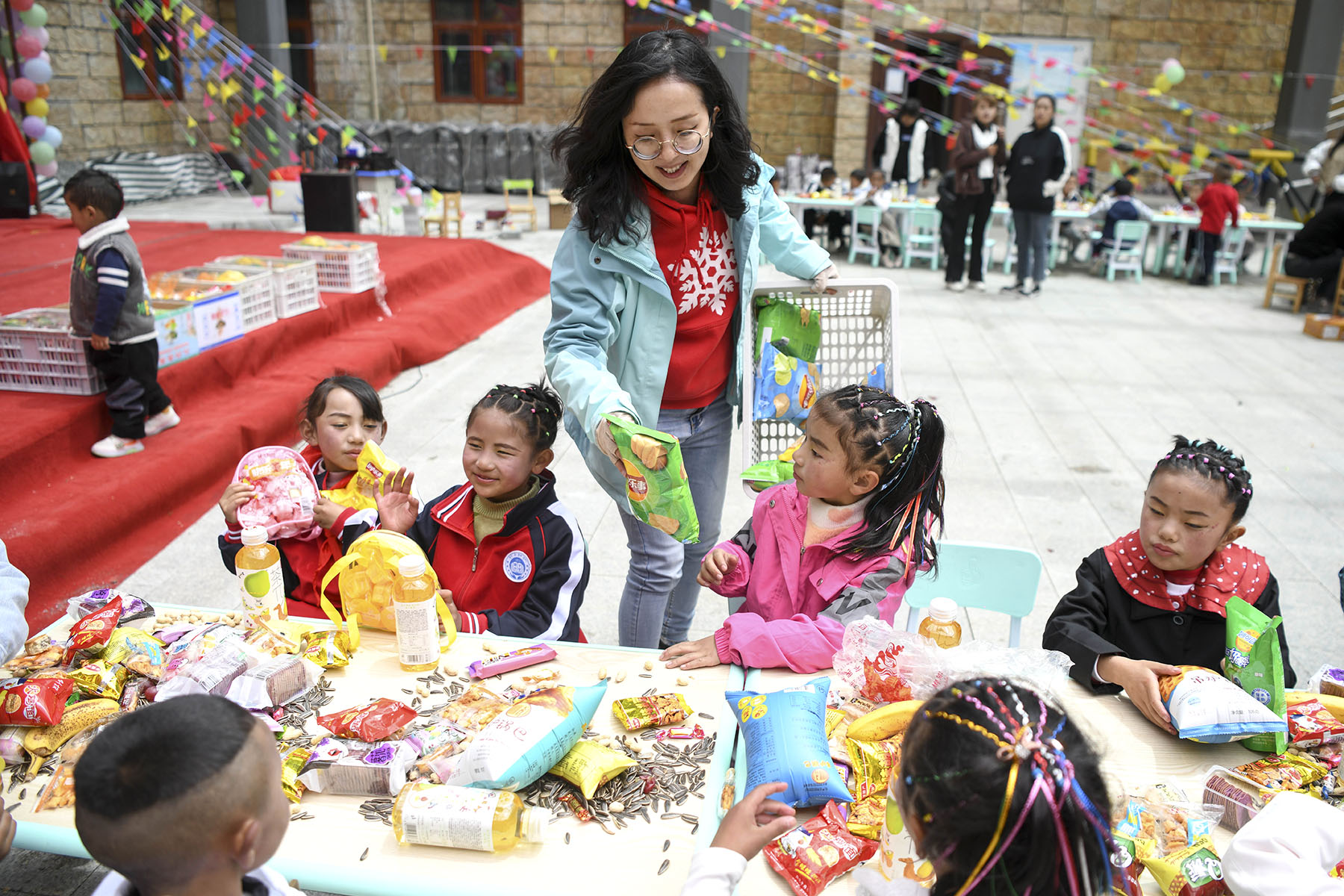
Since setting foot in Yulmed, Pasang Tsering has also been taking border patrol trips regularly in the mountains lasting three to five days.
The family's legacy has become well known in China after President Xi Jinping replied to the letter they wrote to him in 2017 introducing Yulmed.
Xi, who is also general secretary of the Central Committee of the Communist Party of China and chairman of the Central Military Commission, acknowledged the family's efforts to safeguard the territory, and thanked them for the loyalty and contributions they have made in the border area.
"Without the peace in the territory, there will be no peaceful lives for the millions of families," Xi wrote.
Xi also expressed his hope that the family would motivate more people to set down roots in the border area and become guardians of the Chinese territory and constructors of a happy hometown.
In 2021, Zhoigar was awarded the July 1 Medal, the highest honor in the Party established by the CPC Central Committee, for her decades-long guarding of the country's territory.
Since 2018, Xizang has launched a campaign to develop its 624 villages along the 4,000-kilometer border with India, Nepal, Myanmar and Bhutan, which is of great significance to the long-term peace of the region and China's sovereignty.
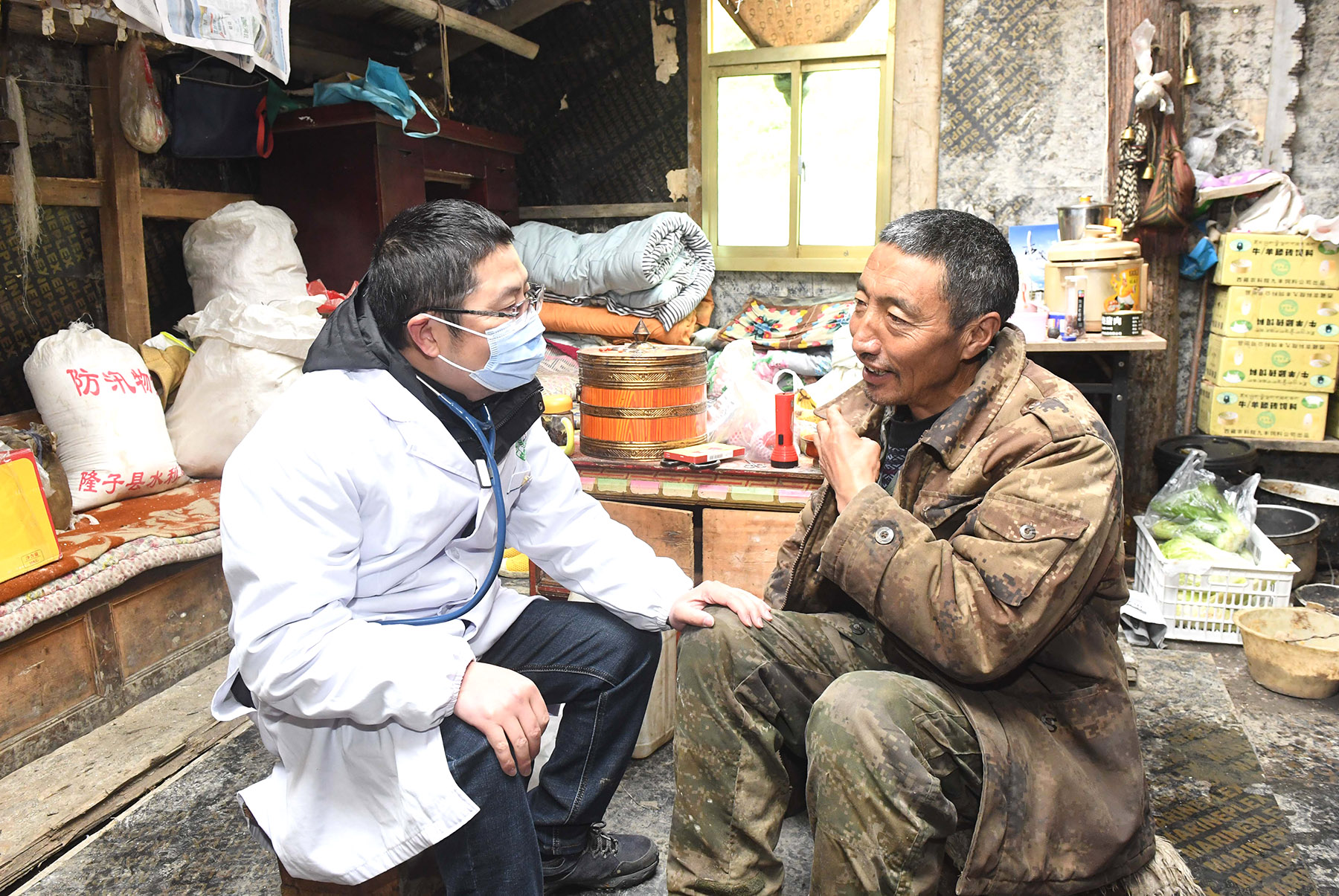
The region has ramped up policy support for the project, sped up construction in those border areas, and made extensive efforts to improve the livelihoods of residents living there.
Nowadays, the border villages in Xizang have been provided with paved roads, while all the border townships in the region are now connected to power networks and mobile internet services.
Furthermore, local people's access to safe drinking water has been guaranteed, and public facilities have been further improved to make sure local residents can enjoy education and medical care. Specialty industries have also been developed in the region's border areas to promote prosperity for rural residents.
ALSO READ: Better living conditions secure borders
Yangzom now mainly runs a homestay and takes care of her naughty grandson who she believes spends too much time watching cartoons on an electronic tablet.
"I am sure my father would be very happy to see how Yulmed has been developed and transformed," she said, "and I have nothing to worry about now since the younger generation of villagers can have a good life here."
"More importantly, they all understand the importance of protecting the homeland, just like we do," she said.
Contact the writer at cuijia@chinadaily.com.cn


